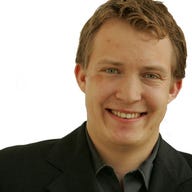One-third of Europe's software industry is SAP

German companies are dominating the European software market – with SAP accounting for over one-third of all software revenues in the continent.
According to an annual list compiled by VC firm Truffle, 15 of the top 100 software companies in Europe by revenue hail from Germany, including four of the top 10.
Germany accounts for over 48 percent of Europe's software revenue, according to the Truffle list, bringing in €18.1bn of the continent's €37.2bn software revenues last year. However, SAP remains Europe's 100lb gorilla, accounting for €14bn of software revenues in 2011.
The company dwarfs its nearest rival in Europe: France's Dassault Systemes, the second biggest software company in the continent, accounted for €1.8bn of revenue in 2011 – almost one-tenth that of SAP. Germany's second biggest software company, banking software firm Wincor Nixdorf, brought in €1.7bn, and secured fourth place on the list, behind the UK's Sage.
Federal states like Bavaria or Berlin have been supporting the growth of the tech industry with special subsidies for IT companies, while universities also have a long history of backing current and former students when they want to fund their own companies. UnternehmerTUM, for example, is an incubator for new companies at the prestigious Technische Universität München.
But what about the next generation of German software giants? According to Bitkom, the German trade body for IT, telecommunications and new media, most of the country's IT start-ups are founded in the cities of Munich and Berlin, followed by Frankfurt and Hamburg.
Typically, founders of Germany's start-ups have not only gained a degree, but have worked for more than 17 years, 11 of which they spent in the industry in which they go on to start their company. As a result, the average age of a start-up founder is 38 years - considerably older than start-up poster boy and Facebook founder Mark Zuckerberg, who turned 28 this year.
According to Bitkom, which published a report on German start-ups this week, newer companies tend to invest heavily in research and development.
Over the course of four years, a typical company needs around €700,000. Of that, just €70,000 tends to be spent in the first year, growing to around €277,000 in year three.
Most of this money doesn't come from banks or venture capital funds, however. "Newly founded companies are mostly financed by the founders' own funds," Dieter Kempf, president of Bitkom, said. "During the first year, the company's income covers around 48 percent of its costs, while the founders account for 35 percent. Bank loans are as low as six percent, and we found that venture capital amounts to a maximum of five percent." During the next three years, the company's income will cover 88 percent of its costs.
Both banks and private investors are missing good business opportunities if they don't support start-up founders: "You cannot build a global player with just the savings book of the founder," Kempf said. After five years, 60 percent of all IT start-ups are still on the market, Bitkom found. "Most of these companies are success stories," Kempf added.
According to the a study published by the European Commission this week, Germany is one of the most innovative regions in the EU, with 12 out of 16 German regions ranked as 'innovation leaders'. Most of these regions match Bitkom's findings.